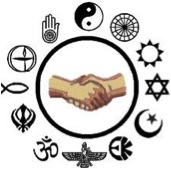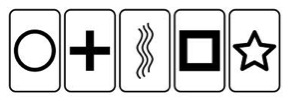Truth is such a slippery customer
Posted on 07 February 2012, 14:17
On the one hand..
Engaging with Spirit lies at the heart of all religions. And in all religions there is the corporate and personal experience, the communion with the Unseen as well as with one’s fellows. Each religion has its holy books, with the teachings and experiences of spiritual forebears. These holy books and teachings are very necessary, for they embody the experiences and thought of great leaders of the past.

The corporate teachings and practices of the great religions are not lightly to be dismissed, even though it is easy to find things to criticise in each of them. With all their many faults, the religions are communities of faith and love who embrace all walks of life, children and adults, sane and insane, rich and poor. They have produced great thinkers, great mystics, and there is corporate wisdom that individual seekers can never match.
Most churches, synagogues, temples and mosques embrace a great variety of people within them, and, speaking for Christian congregations that I have known, they comprise people of very varying beliefs and personalities, and varying stages of emotional wellness. Caring for each other in such a community is a very human thing to do, caring and communing in spite of these differences. Speaking for myself, I do not at all regret having spent nearly sixty years as a clergyman.
Not to belong to a community of faith, leaves us unchallenged in our private worlds of belief, and that may or may not lead to spirituality of a high order. Furthermore, we could argue that love of neighbour should have priority over having the right philosophical beliefs.
...and on the other
For the very reason that there is such mixture of beliefs and personalities in communities of faith, we do need to cultivate our private worlds. A clergyman friend once said to me that he started asking members of his congregation what they believed, and that he was so shocked by the variety of answers, he stopped asking.
So we have the unsatisfactory situation where members of communities of faith derive their (sometimes well-founded) beliefs from selections from the holy books. They do this rather than from disciplined study of authentic experiences.

We could regard such experiences as those of people whose integrity is widely trusted. For some time Michael Tymn has been describing such experiences, as well as Stafford Betty, Scott Rogo and many others. Many phenomena similar to those reported in the Christian New Testament, are recorded and studied now, and thus authenticated. Surely it is an immense loss to the depth of belief and faith, if we just rely on a holy book which may or may not contain fairy tales. Mainline Christian churches seem to have lost both authority and vitality, and this must not only be due to the aggressive Materialism of society, but to failure to base teaching on authenticated present-day experiences. Failure to do this, prevents proper inter-confessional dialogue.
Truth, for me, lies in experience.

In my last blog I gave evidence that music medium Rosemary Brown channelled new compositions by Schuman,, Beethoven, Liszt and others. If this is good evidence, then we know that inspiration and creativity can sometimes occur in cooperation with afterlife composers. As we study the now considerable mass of authentic paranormal phenomena in the literature, we can build up quite an extensive picture of what we may rely on as factual in spiritual matters.

Sometimes we can measure and quantify experience: J.B. Rhine of Duke University pioneered statistical evaluation of card guessing experiments. In a pack of 25 Zener cards consisting of five circles, five squares, five stars, five wavy lines, five crosses, over many trials we would expect, by chance, guesses to be correct five times out of twenty-five. If over many trials someone guessed an average of 27, what would the odds against chance then be? The greater the number of times a person guessed 27 correctly, the greater the odds against chance. So we have a kind of truth in this case. It might be said that the odds against chance were such and such.
But truth is such a slippery customer.
Psychic researchers strongly suggest that mind creates reality, creates the truth. Even if we are thinking in everyday terms, if we look at the place where we live, our house or apartment, the garden, the street, the shops, what can you find that the human mind did not create? Nearly every plant, tree or shrub was intentionally planted there. The human mind did not create the sea, or the air, or the distant hills; but even here the human mind is having its effect through the release of carbon dioxide.
It is everywhere reported that the afterlife is very much a product of mind, and to begin with at least, one seems to have a solid body, and to inhabit houses like those to which we have been accustomed. Religions, at least partially the products of the human mind – they too create realities, which are said to persist into the afterlife. “Beware of the God you worship”, said St Stephen, “you may find him!” Negative aspects of holy books can create negative realities. So if we are members of a community of faith, we often need to stand apart, and ask ourselves what kind of truth, what kind of reality do we want to create? Do we want a reality where women are mere chattels? Do we want a reality where we have closed minds, and learn nothing? Do we want a reality where we have freedom to love, and freedom to think?
I said that truth, for me, is experience. Am I open to learn from it?

Gary Schwartz, David Peat, Wolfgang Pauli and many others have described experiences of synchronicity (“the Holy Spirit at work”). Remember my blog about stainless steel saucepan lids? Discarnate GW seems to knock down the lids, the first that his firm of Firth’s Stainless Steel had produced, to knock down pictures, one of them on to my head: he seems to refer me to words in the only book that he had given his daughter, words his daughter was shortly to hear at the beginning of a drama broadcast by National Radio. There were many more events in that synchronicity which seemed to have suspended the rules by which our “real world” of see and touch operates.
This is one example of an experience that changed how I view reality and truth.
If you would like to think further about these issues I recommend a series of videos that you can find in Victor Zammit’s website:
http://www.victorzammit.com/evidence/physics.htm
Victor Zammit writes that , as a group, physicists are realizing that what we think of as reality is actually an illusion and there could well be other worlds, even other universes which include the afterlife.
Professor Fred Alan Wolf sums up this view when he writes:
“There is evidence that suggests the existence of a non-material, non-physical universe that has a reality even though it might not as yet be clearly perceptible [ able to be detected ] to our senses and scientific instrumentation. (1998:245)
You might like to view the BBC video The Illusion of Reality
Other scientists like Dr. Charles Tart argue that traditional science has unnecessarily limited itself and it is possible to use scientific method to investigate spiritual subjects
But it is unwise to so much rely on our holy books, that we do not believe the evidence of our own senses, and experience.
For medicine, Hippocrates and Galen (the latter dying about 200 CE) were holy writ, and doctors followed their teachings, largely without experimenting themselves, until the 16th century CE.
In the case of the New Testament, the Resurrection of Jesus is seen as pivotal. And it is so for the Christian churches. But we have problems with the NT stories of the resurrection of Jesus as they stand. I Googled “inconsistencies in the resurrection stories” and found this reference from a sceptical article, which many scholars belonging to The Jesus Seminar would be happy to corroborate. Of course all these inconsistencies are not fatal to a belief in Jesus’ resurrection: we can remind ourselves how St Paul visited St Peter in Jerusalem not so very long after the crucifixion, and spent two weeks with him, meeting James the brother of Jesus, and how Paul spoke of a personal experience of the risen Jesus, and made the crucifixion and resurrection a central theme in all his letters. We can also remind ourselves that Paul wrote long before the Gospels were written.
Such reasoning may persuade us that the resurrection of Jesus was a fact. On the other hand we live in an intensely materialistic society, and while an increasing majority of people in Western countries believe in some sort of afterlife, many academics are scornful of the reality of Spirit. And this does include a number of theologians.
Naturally, many people who are committed members of their religions are very spiritual people, and will have their own direct intuitions and experiences of Spirit. To be spiritual is to have a relationship with Spirit, and a desire to live in the light of that Spirit. Spirituality is a living affair, and by no means comes merely out of books.
But do we not need present day experience to confirm what we derive from the holy book?
Is it not of great importance that people have NDEs and OBEs? That a surprising number of people receive apparently bodily visitations from the dead, experiences with similarity to the experiences of the disciples of the risen Lord? Is not Christianity hamstrung, if it cannot refer to modern day instances of what was happening way back then?
If you would like to be notified each fortnight when the next blog is uploaded, then email SUBSCRIBE to .(JavaScript must be enabled to view this email address)
Michael’s revised edition , Afterlife Teaching From Stephen the Martyr is published by White Crow books and available from Amazon and all good online book stores.
Paperback Kindle

Next blog, February 21
http://whitecrowbooks.com/blogs
|